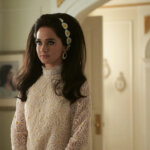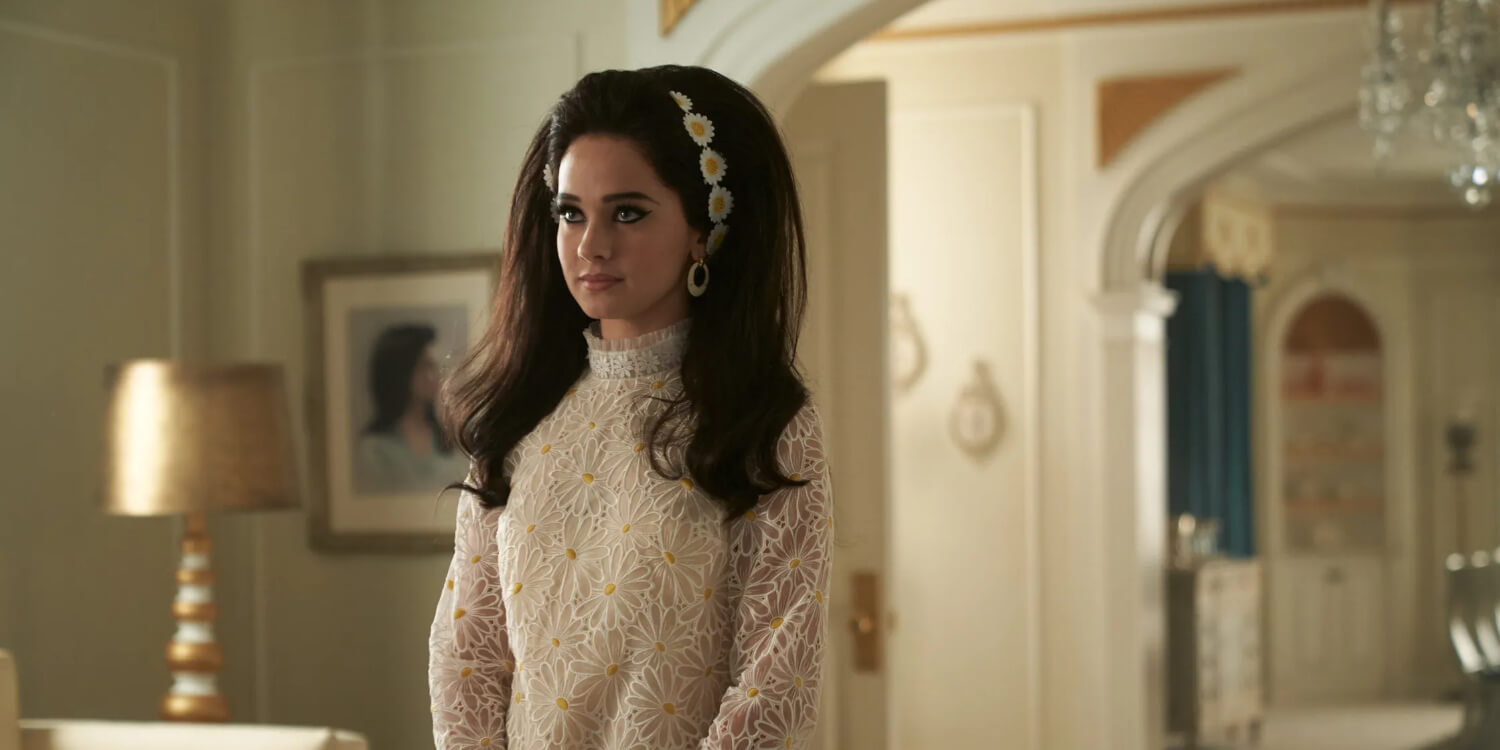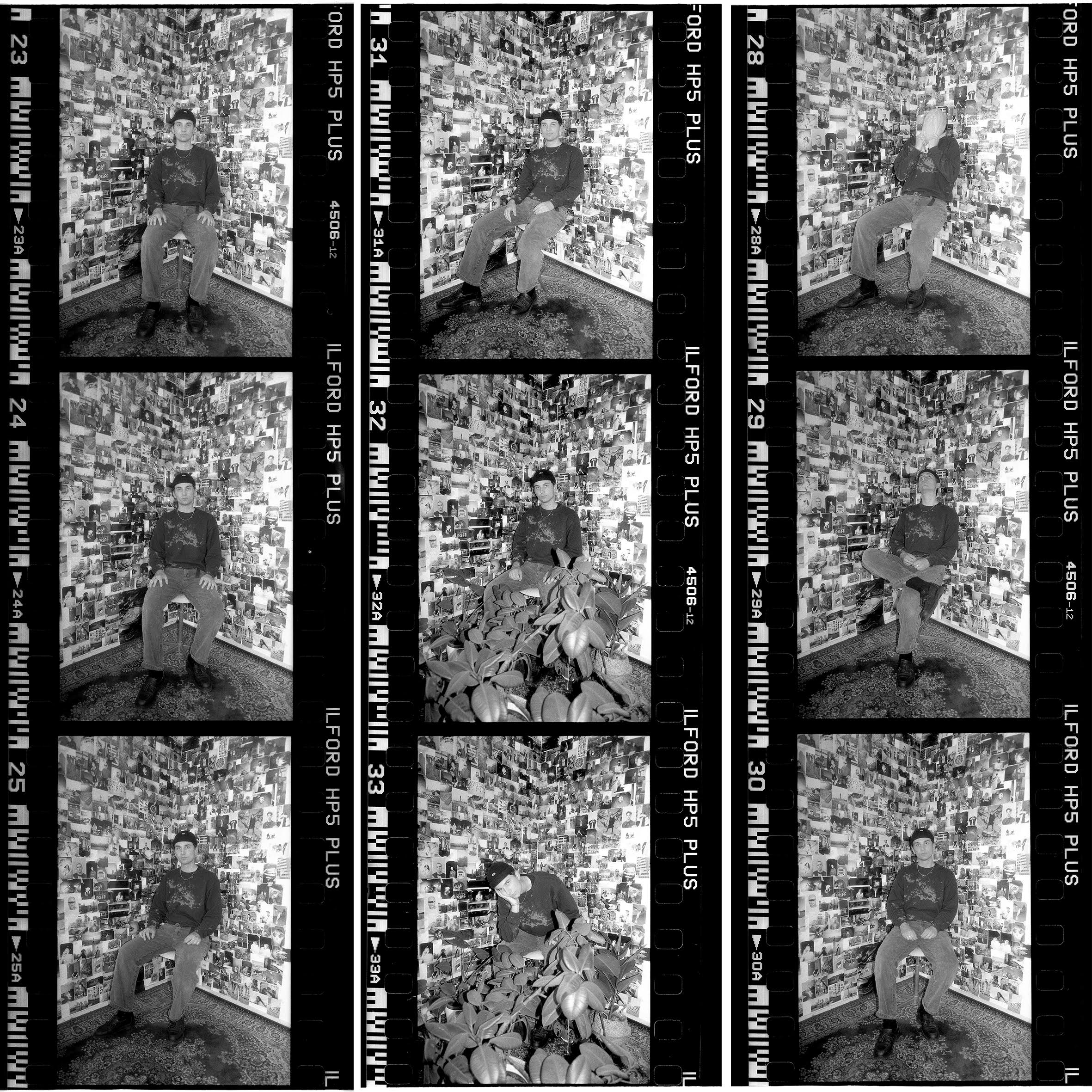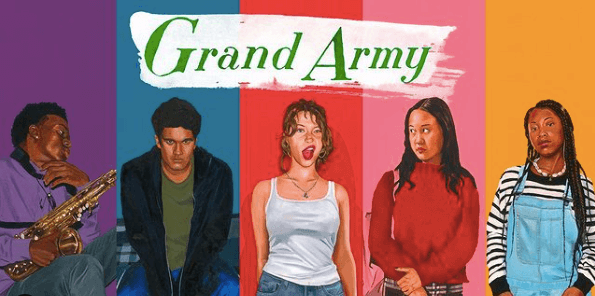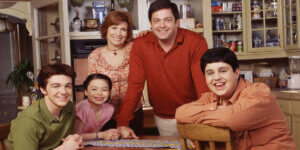Last year when the Elvis biopic was released, it was hailed as a chronicle of the King, and it relaunched his career and estate back into the limelight. He was applauded once again. But with this chronicle, no Elvis songs even appear in Sofia Coppola’s film adaptation of the story behind Elvis Presley’s wife of six years, Priscilla. When separating the man from the rock star, we are left with a grim and stony tale of what Elvis was like as a husband. While choosing not to further Hail the King with his music was done out of logistic reasonings rather than artistic purposes (production company A24 was not able to obtain rights to any of his songs), this added a further element of shifting the spotlight onto his oft-over looked romantic counterpart, allowing a character space to be formed of what Priscilla (portrayed by Cailee Spaeny) may have been listening to when her husband was away (which he often was) or what she would listen to if she had existed as her own main character growing up and falling in love.
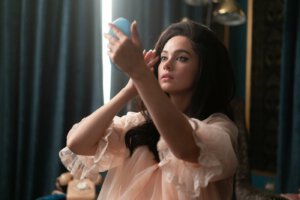
Courtesy of A24
Coppola chooses to push the man aside in this story, and focuses upon the woman that stood in her man’s shadow during her own coming-of-age era. As is the case of Coppola’s adaptation of teen queen Marie Antoinette, Priscilla arrives young and vulnerable into an- if not arranged, at least questionably agreed upon- marriage with Elvis, who had already rocketed to stardom upon first meeting the 14 year old when he was briefly stationed in the US Army in Germany.
Priscilla is a small story in an ornate frame: a young desperate housewife with too much time and too little self-autonomy. As is delightfully typical in most of Coppola’s films, the boredom is endless and innocent, and it’s relentlessly shallow. Priscilla takes comfort in clothes, hair, sweets, and home. The Items & Baubles take a main role and point of purpose in most of Coppola’s female-oriented films. In Priscilla’s case, we are shown Prisicilla herself ultimately taking on Accessory Status: she’s beautiful, fairly useless, and comes with a warning of fragility, to Handle with Care, and encouraged not to think or speak too much. She doesn’t have anything to do, she is stirred down, “do not take on any hobbies or form any opinions.”
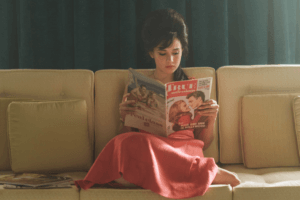
Courtesy of A24
I admittedly have never been a fan of Elvis. And if I wanted to watch two hours of grooming, of yet another child bride falling victim to the power trip of an older man, my preferred style is an in-depth binge of True Crime. Instead, Priscilla dives into a realm of tragic frivolity with plenty of nice distractions to keep the audience wide-eyed, with strange laughs interspersed through a landscape of uncomfortable solitude and fury hidden in plain sight, behind velvet curtains. The melancholic girl’s fantasy- of which Coppola consistently portrays and feeds upon- has never looked so unsettling and sad, perhaps because a baby is also thrown in the mix for the first time in one of her films. The movie jumps from event to event, place to place, mirroring the blurry haze of Priscilla’s memories of her young love’s demise and ultimate abandonment. The focal points of the film are quiet and intimate, and some scenes are like getting a peek into a woman’s rosy musings and troubles from her locked tear-stained diary.
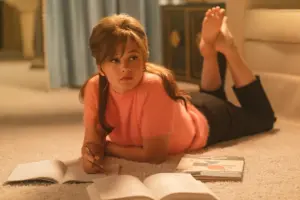
Courtesy of A24
The final scene is a whirlwind of emotions, and is left rather open-ended, encouraging the audience to analyse and interpret in their own ways how and why the fabled relationship ultimately ended (of which there are a multitude of reasons to choose from) but the viewer rests assured and is rooting for Priscilla, as she starts to trade in existing within the world of her husband, for living in and building her own. From Coppola, we are offered a lesson on varying frames of solitude and separation, dependency and toxicity, the notion of blurred boundaries, and leaning into a contemplative understanding of self with Other: an understanding of which can never come too late.








